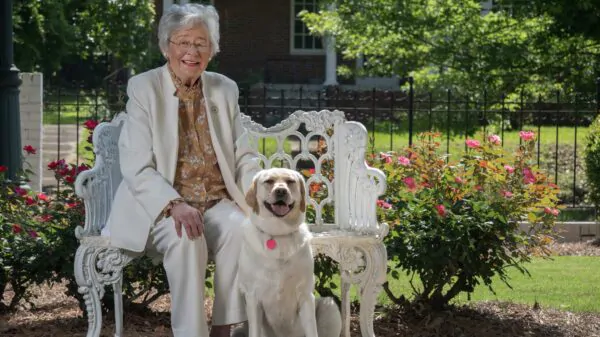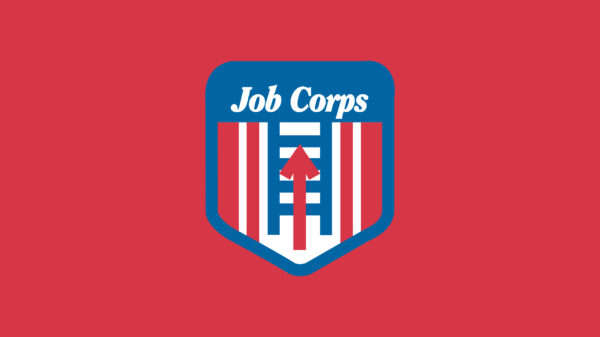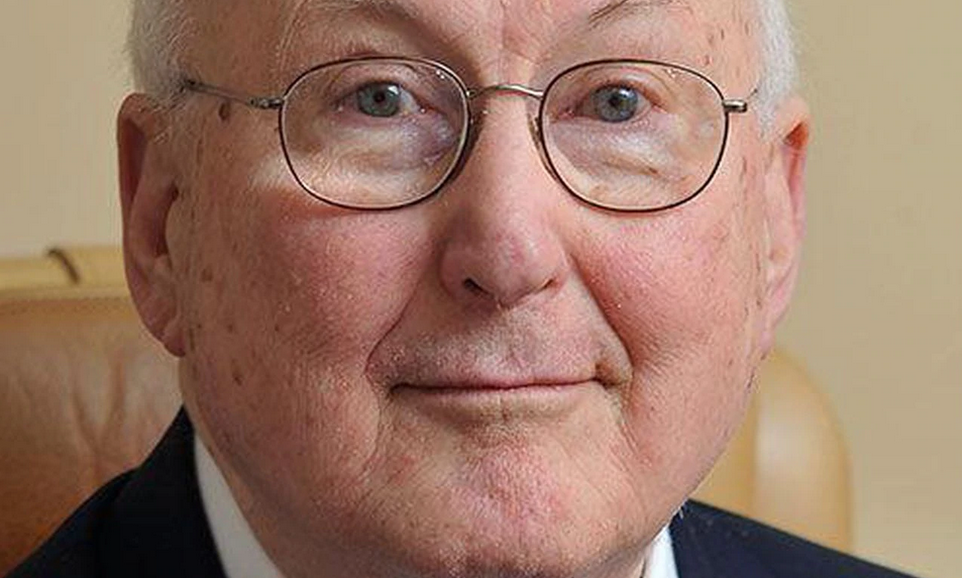By Eddie Burkhalter
Special to the Alabama Political Reporter
As news articles broke throughout 2017 of men and women coming forward, sometimes decades afterward, to say they’d been sexually assaulted and harassed, former Anniston Star reporters took notice.
Some of these former female Star reporters say H. Brandt Ayers, the paper’s former publisher and current chairman of the board of Consolidated Publishing, which owns The Star and five other newspapers, assaulted them decades ago.
Other staff members also recall the incidents. Most of them didn’t see them take place but were aware of them.
Veronica Pike Kennedy, one of those former Star reporters, said that in February 1975, she was forcefully spanked by Ayers in the newsroom.
Ayers, in a reply Sunday afternoon to questions emailed to him Friday about the incidents, wrote, “I have no memory of the alleged incidents.”
Ayers, the son of The Star’s founder, Harry Ayers, took over as publisher of the company’s flagship daily newspaper in 1969, remaining in that position until 2016. Also, Consolidated Publishing has a relationship with the University of Alabama’s Graduate school of Journalism, which sends between five and seven young interns to The Star newsroom each summer to work alongside staff writers and editors.
Speaking of her own incident, Kennedy said it happened early on a Saturday, “so I was usually completely alone in the mornings.”
Kennedy said Ayers came into the newsroom, handed her a piece of writing and said, “I want you to read this. This is a fine piece of writing. I’ll come back in a little while, and you can tell me what you think.”
“When he came back, I said, ‘This is really very well written. Who did it?’” Kennedy said, adding that she knew Ayers had written it, and it was to be his Sunday editorial. “He said ‘Oh, you’re being a bad girl. I’m going to have to spank you,’” Kennedy recalled.
“I just thought he was kidding, but he started coming around the desk, and I grabbed onto the seat of my desk chair with both hands as tight as I could.”
Kennedy said Ayers picked up the chair with her in it, wrested it out from under her, bent her over the desk behind and spanked her hard 18 times with a metal pica pole, leaving marks. Prior to digital publishing, pica poles were used as rulers extensively by newspaper designers and editors.
“I was fighting him the whole time. Trying to kick him. Bite him. Scratch him. Whatever I could do,” Kennedy said.
Then, Kennedy said Ayers told her, “Well, that ought to teach you to not be a bad girl.”
While Kennedy was usually alone in the newsroom early on Saturday mornings, that was not the case that particular morning. Mike Stamler had just been hired as a Star reporter earlier that month and was in a corner of the newsroom when Stamler said Ayers walked in.
Stamler, a retired press office director for the U.S. Small Business Administration, said he didn’t think much of Ayers appearing in the newsroom until he saw Ayers begin to spank the young reporter.
“After that, I was kind of stunned. That’s not something you expect to see when you’re that age,” Stamler said.
Stamler said he didn’t discuss the incident immediately afterward, but when other reporters began talking about Ayers spanking reporters, he said he described what he saw and that “people would talk about other ones. It was pretty much common knowledge among the reporters.”
Kennedy recalls crying in the bathroom after the incident and trying to calm down.
“I was panicking. I didn’t know what to do. I just had to pull myself together because I could lose my job,” Kennedy said.
Another former female Star reporter, who declined to be named because of the public nature of her current job, described being spanked by Ayers while alone in his office not long after she started at the paper in the fall of 1975.
The woman said Ayers called her to his office during lunch, when the newsroom was largely empty, and told her he was upset that she’d missed a meeting that he said should have been covered.
“All along, I kind of just thought he was trying to scare me. I didn’t think this was real,” the woman said. She said Ayers spanked her and that “I just burst into tears. I was totally humiliated.”
“He said, ‘you need to go in my bathroom and clean up before you leave,’” she recalled.
A few moments after the incident, the woman said she called her then-boyfriend to tell him about what had happened. The boyfriend, now her husband, said he remembers getting that call.
“It was a traumatic experience for her, and we just didn’t know what to do or say,” her husband said.
When news accounts began appearing this year with stories of abuse that many had kept secret for decades, the husband said he and his wife thought of The Star.
“It was something that came back into our minds immediately,” he said. “We wondered whether or not this story would come to light, because we know that she was not the only victim.”
Kennedy and several other former reporters interviewed also said the woman told them what had occurred to her shortly after it happened.
Trisha O’Connor, who worked at The Star as a reporter and editor from 1973 to 1979, recalled an incident involving her friend and fellow reporter, Wendy Sigal.
Sigal, a native of Youngstown, Ohio, came to The Star in November 1973 from The Washington Post, where she had been a general assignment and crime reporter.
O’Connor, now a Journalist/Media Executive-in-Residence at Coastal Carolina University in South Carolina, and a retired editor of The Sun News in Myrtle Beach, SC., said she can’t recall precisely when the incident occurred, but thinks it was about a year after Sigal started at The Star. Sigal’s last two stories in The Star were published July 7, 1974, according to newspaper archives.
“She was in her apartment and hadn’t been coming to work,” O’Connor said of Sigal. “I got a call from her saying that Brandy had just been there. She was hysterical, so I immediately went over to see about her.” O’Connor referred to Ayers by his nickname, Brandy.
O’Connor said that when she arrived at Sigal’s Anniston apartment, her friend said Ayers had come to her apartment and told Sigal, “You’ve been bad,” and spanked her.
O’Connor said shortly after the incident, she and former Star editor, John Childs, learned that Sigal’s family members had come to Anniston, and both O’Connor and Childs went to meet them at the Downtowner motel and restaurant in Anniston. O’Connor said that when she and Childs arrived, Ayers and his wife, Josephine, were with Sigal’s family member.
O’Connor said she and Childs attempted to explain to the Sigals that Wendy Sigal was not fabricating the incident at her apartment, but that doing so in the presence of the Ayerses made that task difficult, she said.
Soon after, Sigal left Anniston, O’Connor said. She believes her family took her away, but is uncertain where. O’Connor and others have since searched for Sigal, but haven’t been able to locate her. This reporter’s efforts to find Sigal and contact her family members were also unsuccessful.
O’Connor, Kennedy, and the other female reporter in this article said female reporters discussed these matters frequently among themselves at the time, all three said in separate interviews. Kennedy said one other female Star employee told Kennedy that she, too, was spanked by Ayers.
Attempts to contact some of the other women were unsuccessful. Attempts to locate contact information for still others were unsuccessful.
In an email Friday to Ayers, and to The Star managing editor, Ben Cunningham, and editor and publisher, Bob Davis, Ayers was asked to confirm whether the separate incidents in this article involving the women were true. He was also asked whether he plans to remain chairman of the Consolidated Publishing Board, among other questions.
“Though the writer has not done me the courtesy of calling me with a direct question, I will say that I have no memory of the alleged incidents,” Ayers replied in an email Sunday afternoon. “Of course I intend to remain as Chairman of this company which has been the central mission of my family for three generations.”
In a 2006 civil lawsuit, unrelated to the incident cited in this article, filed by a former Star advertising employee against Consolidated Publishing, the topic of Ayers and spanking came up twice.
In that lawsuit, the employee, Sharon Rutherford, charged sexual misconduct on the part of a supervisor, not Ayers.
In a deposition in the suit, Rutherford recalled Ayers attending a birthday party celebration for a female Star employee, held at the paper, and that “he wanted to give her a little spanking. He wanted to give her a little birthday spanking,” according to court records.
Rutherford testified that the woman didn’t appreciate Ayers attempt to spank her, and that she ran away to another man in the room “to help her.”
James Ayer’s Jr., an attorney representing Consolidated Publishing in the suit, asked Rutherford if she knew of any other sexual affairs that took place at the company, other than the one connected to the suit. Rutherford replied that Ayers “loved to spank the little young girls. That was his thing.”
Rutherford went on to testify that she’d heard from a Star editor that Ayers spanked “Wendy Seigel,” apparently misspelling Sigal’s name, and then Rutherford referenced the name of the same former reporter quoted in this article, who described being attacked by Ayers in his office for missing a meeting.
Rutherford said former Star editor John Childs told her Ayers wanted to commit Sigal to a mental institution, but that Childs intervened and called Sigal’s brother, asking him to help.
Ayers, in a deposition, was asked about Sigal and how she came to the Star. Ayers replied that The Washington Post sent her down to Anniston “to see if we couldn’t develop her skills as a reporter.”
Asked by the plaintiff’s attorney, Candis McGowan, whether there was ever a matter involving a reporter and her parents threatening to sue The Star over some inappropriate touching, Ayers replied, “That didn’t come to me.”
Asked later during the deposition if an employee had ever complained that Ayers had inappropriately touched them or made an inappropriate sexual comment, Ayers said “not formally, no.”
“Informally?” McGowan asked Ayers.
“Possibly,” Ayers said. “Back in the dim ages.”
Attempts to contact John Childs were unsuccessful.
Dennis Love was a reporter and columnist at The Star from 1977 to 1978 and again from 1981 to 1984. Love is the author of “My City Was Gone: One American Town’s Toxic Secret, Its Angry Band of Locals, and a $700 Million Day in Court,” which chronicles Anniston’s struggles with toxic PCB contamination.
Love said that he never saw Ayers spank a woman, but that three female reporters told him they’d been spanked by Ayers. He declined to name two of them without their permissions but said that Kennedy was among them.
“And I certainly believed them. It was certainly real,” Love said.
Love described The Star at that time as a place that attracted quality reporters who practiced good journalism and that people respected Ayers and his vision for the paper.
“This was at a time when the paper was at a high-water mark. We were doing a lot of great work,” Love said. “Time magazine named the paper one of the best small dailies in the country.”
When asked how these incidents stayed largely a secret for so long, Love said it could be because the act itself “is just such an embarrassing and humiliating and traumatic thing for a victim to go through, and I can certainly understand why there would be reluctance to come forward or to try to carry that into battle.”
And Love said he thinks that there was just never a moment when people felt safe enough to come forward, but Love said that when news reports of victims doing so years afterward continued to break, he immediately thought of The Star.
Love said that at the time, for him and others, “It was like one of shock, and I think unfortunately most of us were cowards. I think I certainly was.”
“This was some time ago, and it would be easy to say, ‘It was in a different time and place,’ but that’s not right,” Love said.
In his own words, Ayers views on spanking appeared in his own writing, in his editorials and in his autobiography.
“It infuriated me,” Kennedy said of reading passages in Ayers’ 2013 memoir, titled In Love With Defeat: The Making of a Liberal Southerner.
In the two passages, Ayers wrote that in the 1940s, spanking “was as American and Southern as fried chicken on Sundays,” and that the first time he met his wife-to-be, he’d angrily made a comment “not calculated to endear me, ‘If I knew you better, I’d spank you.”
Recalling his childhood and a young neighbor girl named Lyda, Ayers wrote, “Anniston for me was still an idyll of remembered Saturday afternoons, the deadness of the mummy at Carnegie Library, the fumbled kiss I gave Lyda by the fig tree and the time Lloyd and I chased and spanked her in the backyard.”
In a May 15, 1975, editorial, Ayers railed against a column by journalist Ellen Goodman in which she criticized a U.S. Supreme Court decision that allowed teachers to spank students. Ayers wrote of a study that showed a majority of southern parents approved of spanking, and that many of them “probably would say that Ms. Goodman’s perspective on life would have been improved if she’s had a few good spankings when she was a child. Note the approving modifier, Good.”
“A child quickly forgets a smarting bottom but will be scarred for life by the cold, empty, pitiless abuse of neglect,” Ayers wrote.
The former reporter who described herself being attacked by Ayers in his office said that she decided to speak up now “because I think there are a lot of young girls out there that are in positions that I was in who need a voice, and that it’s not okay.”
“When that ‘Me too’ campaign came up I really wanted to put ‘me too’ but I didn’t,” she said. “My children are grown up, and I had never told them.”
But she did finally tell her adult children, just before agreeing to speak to this reporter about her story. Her daughter, who is 25 and just a little older than she was when she said Ayers spanked her, burst into tears, “Even knowing that was something that happened to me 40 years ago.”
She described what happened to her as “humiliating” and that she didn’t know how to react and cope.
“I didn’t have the strength at that time to say, ‘what do you think you’re doing?’” she said. “But I think today, sometimes secrets are meant to be exposed and people have to be accountable.”
For Kennedy as well, it was those many news accounts that prompted her to open up, although she had wanted to for years but never managed to do so. She and her husband, Pulitzer-Prize winning editorial writer, Joey Kennedy, talked about her attack, and she agreed that he should write about it.
Joey Kennedy’s first column on the matter appeared on the Alabama Political Reporter website on Nov. 16. The column didn’t identify Ayers by name but described his wife’s attack. He wrote about it again on Dec. 28 and did name Ayers as the publisher who assaulted his wife.
Kennedy himself was a reporter at The Star in the 1970s and wrote in the later column, “Thank God for #metoo in 2017. Now, women can speak out, and not be afraid their remembrances will simply be discarded.”
“It has stayed with me to this day,” Kennedy said of that day.
The Star was, and is, a fine newspaper, Kennedy said, but there’s also a hidden thread of evil there, and that speaking out now “is about finally getting some justice.”
Burkhalter resigned as an Anniston Star staff writer on Nov. 21, 2017.



















































